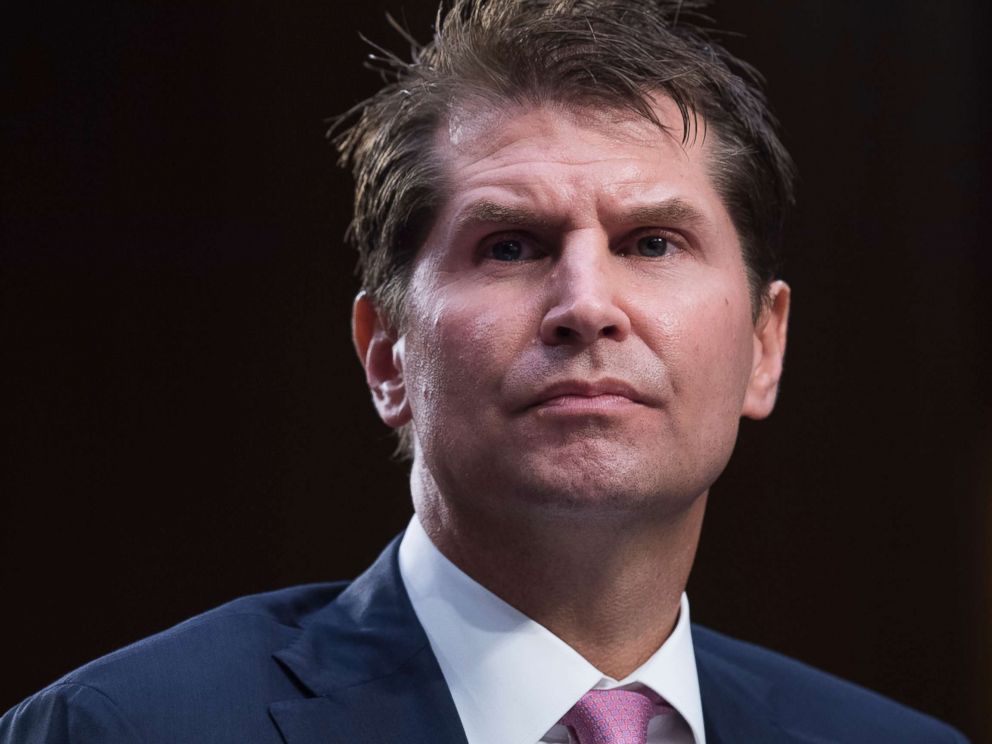By Joseph Marks

Senate Judiciary Committee Chairman Lindsey Graham (R-S.C.)
Trump administration officials have warned for months that Huawei’s global expansion into next-generation 5G wireless networks would amplify the threat of Chinese digital spying.
But now they’re taking the gloves off, accusing the Chinese government of running roughshod over international norms and its own laws to steal Western innovations.
The stepped up rhetoric comes as President Trump imposed high tariffs on a wide range of Chinese imports, leading to a major escalation in trade hostilities between the two countries.
The move to 5G makes concerns about spying and sabotage significantly more pressing because its super-fast speeds will allow far more systems critical to public safety to run on wireless internet connections, such as high-tech medical equipment and driverless cars.
If Huawei gains a foothold in U.S. allies’ 5G networks, the Chinese government could force the company to send software updates to spy on Western companies or sabotage critical infrastructure, Chris Krebs, director of the Homeland Security Department’s Cybersecurity and Infrastructure Security Agency, warned lawmakers during a Senate Judiciary Committee hearing Tuesday.
Beijing could also exploit hidden vulnerabilities that already exist in Huawei products to hack adversaries or it could plant spies inside Huawei teams that work abroad servicing the company’s technology, Krebs said.
“It’s not about overseeing Huawei. It’s about overseeing China,” Judiciary Committee Chairman Lindsey Graham (S.C.) said during the hearing.
Administration officials formerly attributed their concerns about Huawei to a 2017 cybersecurity law they said would force the company to cooperate with Chinese intelligence requests.
The move to 5G makes concerns about spying and sabotage significantly more pressing because its super-fast speeds will allow far more systems critical to public safety to run on wireless internet connections, such as high-tech medical equipment and driverless cars.
If Huawei gains a foothold in U.S. allies’ 5G networks, the Chinese government could force the company to send software updates to spy on Western companies or sabotage critical infrastructure, Chris Krebs, director of the Homeland Security Department’s Cybersecurity and Infrastructure Security Agency, warned lawmakers during a Senate Judiciary Committee hearing Tuesday.
Beijing could also exploit hidden vulnerabilities that already exist in Huawei products to hack adversaries or it could plant spies inside Huawei teams that work abroad servicing the company’s technology, Krebs said.
“It’s not about overseeing Huawei. It’s about overseeing China,” Judiciary Committee Chairman Lindsey Graham (S.C.) said during the hearing.
Administration officials formerly attributed their concerns about Huawei to a 2017 cybersecurity law they said would force the company to cooperate with Chinese intelligence requests.
But Krebs abandoned that nicety Tuesday.
“This is a single-party government. Everything that flows from the central party is a manifestation of their philosophy,” he said.
“This is a single-party government. Everything that flows from the central party is a manifestation of their philosophy,” he said.
“The [cybersecurity] law is important because it is telling you what they want to do. But they’re going to get what they want anyway, law or not.”
The U.S. and China stepped away from trade negotiations last week amid recriminations, and the heightened rhetoric on digital spying probably will make tensions worse.
The White House, which has struggled to convince allies to restrict Huawei from their 5G networks, may also impose its own ban on Huawei as soon as this week, Reuters reported Tuesday.
Lawmakers are also taking a cue from the administration and moving to restrict China from access to U.S. technological innovations.
On Tuesday, Sen. Josh Hawley (R-Mo.) introduced a bill to bar exporting large categories of technologies to China including artificial intelligence, robotics, semiconductors and advanced construction equipment.
Hawley and five other Republicans also proposed another bill to bar Chinese students from science or engineering schools connected with the People’s Liberation Army from receiving U.S. visas.
“This is a strategy with multiple tentacles,” Sen. Thom Tillis (R-N.C.) said, describing Chinese digital spying efforts, “and we as members of Congress need to understand every one of those and chop them off.”
The U.S. and China stepped away from trade negotiations last week amid recriminations, and the heightened rhetoric on digital spying probably will make tensions worse.
The White House, which has struggled to convince allies to restrict Huawei from their 5G networks, may also impose its own ban on Huawei as soon as this week, Reuters reported Tuesday.
Lawmakers are also taking a cue from the administration and moving to restrict China from access to U.S. technological innovations.
On Tuesday, Sen. Josh Hawley (R-Mo.) introduced a bill to bar exporting large categories of technologies to China including artificial intelligence, robotics, semiconductors and advanced construction equipment.
Hawley and five other Republicans also proposed another bill to bar Chinese students from science or engineering schools connected with the People’s Liberation Army from receiving U.S. visas.
“This is a strategy with multiple tentacles,” Sen. Thom Tillis (R-N.C.) said, describing Chinese digital spying efforts, “and we as members of Congress need to understand every one of those and chop them off.”

